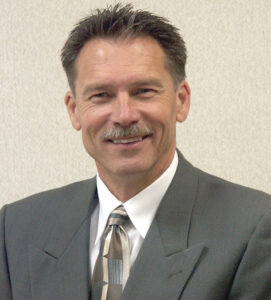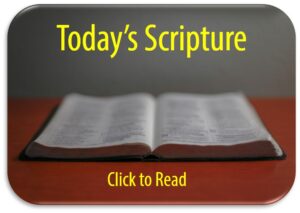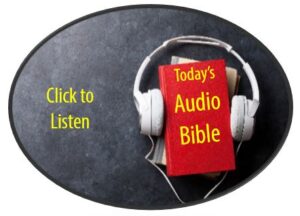Hello, my “Walking with Jesus” friends,
When your family has moved from one town to another, especially if it was a long-distance move, how long did it take you to feel ‘at home’ in your new town? Yesterday we watched as Jacob and his large family caravan left Canaan, their homeland, and traveled hundreds of miles south to Egypt. They brought with them everything they owned for they were leaving a famine and going to a place where food was in abundance. Also, they were moving at the invitation of both the Pharaoh of Egypt and maybe more importantly, Joseph, the favorite son of Jacob, who had been presumed dead for more than 20 years!

Upon their arrival, Joseph brought his father to meet the Egyptian Pharaoh! Now that would have been a remarkable privilege for old Jacob, a refugee seeking survival in Egypt during a famine. But of course what made this possible is that Joseph was both the long lost son of Jacob AND the Egyptian official Pharaoh had personally appointed to manage Egypt’s agriculture resources so Egypt would survive the famine. Pharaoh trusted his very life to Joseph’s wise plan and therefore Pharaoh was very interested in meeting Joseph’s father, even if he was a Hebrew refugee.
Joseph chose to bring 5 of his brothers, sons of Jacob, along with Jacob to meet the Pharaoh. Can you imagine what that would have been like for these guys who had spent most of their lives out on the open range with smelly sheep, entering into the ornate, gold filled palace of the Pharaoh!?
While meeting the Pharaoh they identified themselves as shepherds seeking grazing land for their flocks of animals in this severe famine. They also made a very important and specific statement about their TEMPORARY refugee status: “We have come to live here for a while because the famine is severe in Canaan and your servants’ flocks have no pasture.” (Gen. 47:4)
To leaders of any country in the world, an influx of refugees, especially during difficult economic times, can be terribly unsettling as their country struggles to assimilate many foreign people. In this case Jacob’s sons made it clear they were seeking temporary relief and had full intentions of returning to their homeland after the famine.

Perhaps for that reason, Pharaoh’s response was very generous, telling Joseph, his highly valued famine management official: “Settle your father and your brothers in the best part of the land. Let them live in Goshen. And if you know of any of them with special abilities, put them in charge of my own livestock.” (Gen. 47:5,6)
This was a historic moment for Jacob and his family, for it is this invitation which led them to settle permanently in Egypt and while wonderful at first, it created a disaster many years later. You may know that generations later, when the future Pharaoh saw so many Hebrews living in Egypt, and he knew nothing about Joseph or Jacob, he was fearful and decided to enslave them all!!! (Exodus 1:6-10)
So Joseph settled his old father Jacob and all Jacob’s family in Goshen, the best part of the land of Egypt, and they quickly put down roots enjoying the fertile pastureland for the flocks and Pharaoh’s very generous welcome. But the famine raged even more severely over the next five years and the remainder of Genesis 47 describes how Joseph managed the overwhelming food demand from both Egyptians and people from all surrounding, starving nations.
Genesis 47:27,28 is a very significant statement: “Now the Israelites [Jacobs’ family] settled in Egypt in the region of Goshen. They acquired property there and were fruitful and increased greatly in number. Jacob lived in Egypt 17 years, and the years of his life were 147. When the time drew near for Israel [Jacob] to die, he called for his son Joseph and said… ‘Do not bury me here in Egypt, but when I rest with my fathers, carry me out of Egypt and bury me where they are buried.”
Do you see the significance of this moment my friends? Jacob was the patriarch of his family, son of Isaac, grandson of Abraham, to whom God had given both a Land & People Covenant, remember? (Gen. 15:18-21; 17:19)
Jacob and his family arrived in Egypt during the 3rd year of the 7 year famine, yet Jacob remained in Egypt 17 years until his death. That tells me for more than 10 years AFTER the famine was over, Jacob knew his Covenant family leadership role was to lead his family back to the land God had deeded to them in Canaan…but he didn’t! Why not?
They had been invited by the Pharaoh to settle in ‘the best of the land’ and that tells me they were comfortable, probably growing affluent! Jacob’s grandchildren were being born in Egypt who knew nothing of Canaan. They were speaking the Egyptian language and Jacob’s older grandchildren were getting married and having Jacob’s great grandchildren. Jacob’s family was quickly assimilating into Egypt and with every passing year
Canaan seemed like a distant memory, a foreign country. Oh ‘the best of the land’ can be so enticing, so enjoyable, it was so easy for Joseph’s brothers and their families to forget they were living in the inheritance of God’s Covenant promise about the land of Canaan, yet they were hundreds of miles away living as comfortable refugees in Egypt.
Has that ever happened to you? Have the comforts or pleasures of this world dulled your awareness of or appetite for living purposefully in God’s plan for you? Have you done as Jacob did and resisted returning to living in God’s purposes for you?

Jacob’s request that Joseph would take his body back and bury it with his ancestors in their homeland, was clear evidence Jacob knew and wanted his sons to know Egypt was NOT home! And with every additional year they stayed in Egypt THEIR absence from their homeland was actually inviting other people to move into their Canaan homeland and claim it as their own!
Now think about that my friends as you consider the historic debate, over the past many centuries, about who has rightful claim to the land we know as Israel! In fact among Jacob’s last recorded words are these spoken to Joseph: “I am about to die, but God will be with you and take you back to the land of your fathers…” (Gen. 48:21,22)
Genesis 49 is the beautiful ritual of family patriarch Jacob pronouncing his personal blessing, individually over each of his sons, one after another, in birth order, beginning with the eldest Reuben and ending with Benjamin. Then Jacob gave very clear instructions: “Bury me with my fathers in the cave…which Abraham bought as a burial place. There Abraham and his wife Sarah were buried, there Isaac and his wife Rebekah were buried, and there I buried Leah.’ When Jacob had finished giving instructions to his sons…he breathed his last…” (Gen. 49:29-33)
Amazingly Joseph, the Egyptian official, instructed the physicians to embalm his father Jacob in the Egyptian tradition which required 40 days! Then Joseph, with Pharaoh’s blessing, led a very large funeral procession from Egypt all the way back to Canaan and specifically to that cave in Hebron, where Jacob’s body was buried. (Gen. 50:1-13)
With that burial accomplished, Joseph led his entourage back to Egypt, for his royal position yet required much from him in service to the Pharaoh. As we close today let’s travel along with them and consider what the brothers and Egyptian officials with them were talking about, maybe arguing about. You’ll find it in Gen. 50:14-21 and tomorrow we’ll consider its significance as we turn the page into the great, historical story of Exodus!

For today consider all God was doing in Jacob and his family during and after the famine, as God was faithful to His Covenant, even through all the times Jacob and his family made Egypt their home and did NOT willingly leave Egypt and return to Canaan, as they had told the Pharaoh they would! Have there been times in your life when ‘the best of the land’, comfort and abundance have led you to set aside God’s calling upon or leading in your life? How did that affect the story of your life?
As we worship with this English/Hebrew song thanking God for His faithfulness, I urge us to think about that and consider the additional study questions offered below under the “Grand Narrative” link, and we’ll continue the story with God tomorrow.
Bible images provided with attribution to www.LumoProject.com.
Have a comment or question about today’s chapter? I’m ready to hear from you, contact me here.

Pastor Doug Anderson
“Let us run with perseverance the race marked out for us, with our eyes fixed on Jesus…” (Heb. 12:1,2)
Archived back issues of “Walking with Jesus” and other resources are available by clicking here to open our ‘home page’ (or go to HOME at upper right of this page).
Share with friends. Subscribe below for daily “Walking with Jesus”.



